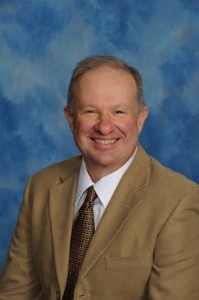NSU Newsroom
SharkBytes
Horizons
This version of NSU News has been archived as of February 28, 2019. To search through archived articles, visit nova.edu/search. To access the new version of NSU News, visit news.nova.edu.
This version of SharkBytes has been archived as of February 28, 2019. To search through archived articles, visit nova.edu/search. To access the new version of SharkBytes, visit sharkbytes.nova.edu.
Gambling amendment a sensible solution
FORT LAUDERDALE-DAVIE, Fla. – Florida House Speaker Will Weatherford has begun promoting the idea of placing a constitutional amendment concerning gambling on the November 2014 ballot. He wants voters to decide if the state should expand its gambling offerings. Florida Senate President Don Gaetz tentatively has joined him, telling reporters, “I think you can make an argument that that’s a systemic change that the people of Florida ought to have a say about.”
In its Dec. 7 editorial, “Gambling amendment a bad bet,” the Sun Sentinel flatly rejected the idea, calling it a “copout” and writing, “The electorate looks to its leaders to solve problems, not avoid them. Floridians were promised leadership on gambling expansion. Weatherford’s idea is anything but.”
In fact, Florida has a long history of turning to the electorate for help on tough issues. Currently, the Florida Constitution has three “local option” provisions. These let local residents decide how they want to proceed on matters that have stymied legislators. Gambling should be added to the list.
When the drafters of the 1885 constitution could not agree whether Florida should be a “wet” or “dry” state, they asked the people. On Nov. 2, 1886, voters approved Ordinance 2 by a margin of 70 to 30 percent. As a result, Article VIII, section 5(a) requires each county to hold its own alcohol sales referendum.
Florida currently has three dry counties — Lafayette, Liberty and Washington. It used to have six, but since 2005, voters in Madison, Santa Rosaand Suwannee have held elections at which they reversed their earlier positions.
In 1998, Floridians approved two new local-option provisions. Amendment 7 passed 57 to 43 percent. Thus, Article V, section 10(b) now empowers voters in Florida’s 20 judicial circuits and 67 counties to change how they pick their trial judges. Amendment 12 won even more handily (72 to 28 percent.) Accordingly, Article VIII, section 5(b) now allows counties to decide whether purchasers of firearms should be subjected to background checks and waiting periods.
Letting each county determine how much gambling, if any, it wants is a sensible solution. Many North Floridians and Central Floridians are against expanded gambling. In contrast, most South Floridians favor it.
In 2004, when asked if they wanted racinos, Broward’s voters supported Amendment 4 67 to 33 percent. In the rest of the state, the proposal barely squeaked by and actually lost in 51 counties. Gambling largely is a local issue. It’s appropriate for some communities, but not others.
Trying to have the Florida Legislature come up with a “one size fits all” solution is not only hopeless, it’s counterproductive. The answer is adding a local gambling option to the constitution. That’s not a copout — it’s progress.
About the Author: Robert M. Jarvis, J.D., is a professor of law at Nova Southeastern University, where he teaches Florida Constitutional Law and Gambling Law.
Media Contact:
Felecia Henderson, Ed.D. | Office of Public Affairs
954-262-5315 (office) | 954-383-4695 (cell)
fhenders@nova.edu
